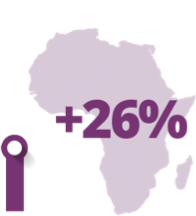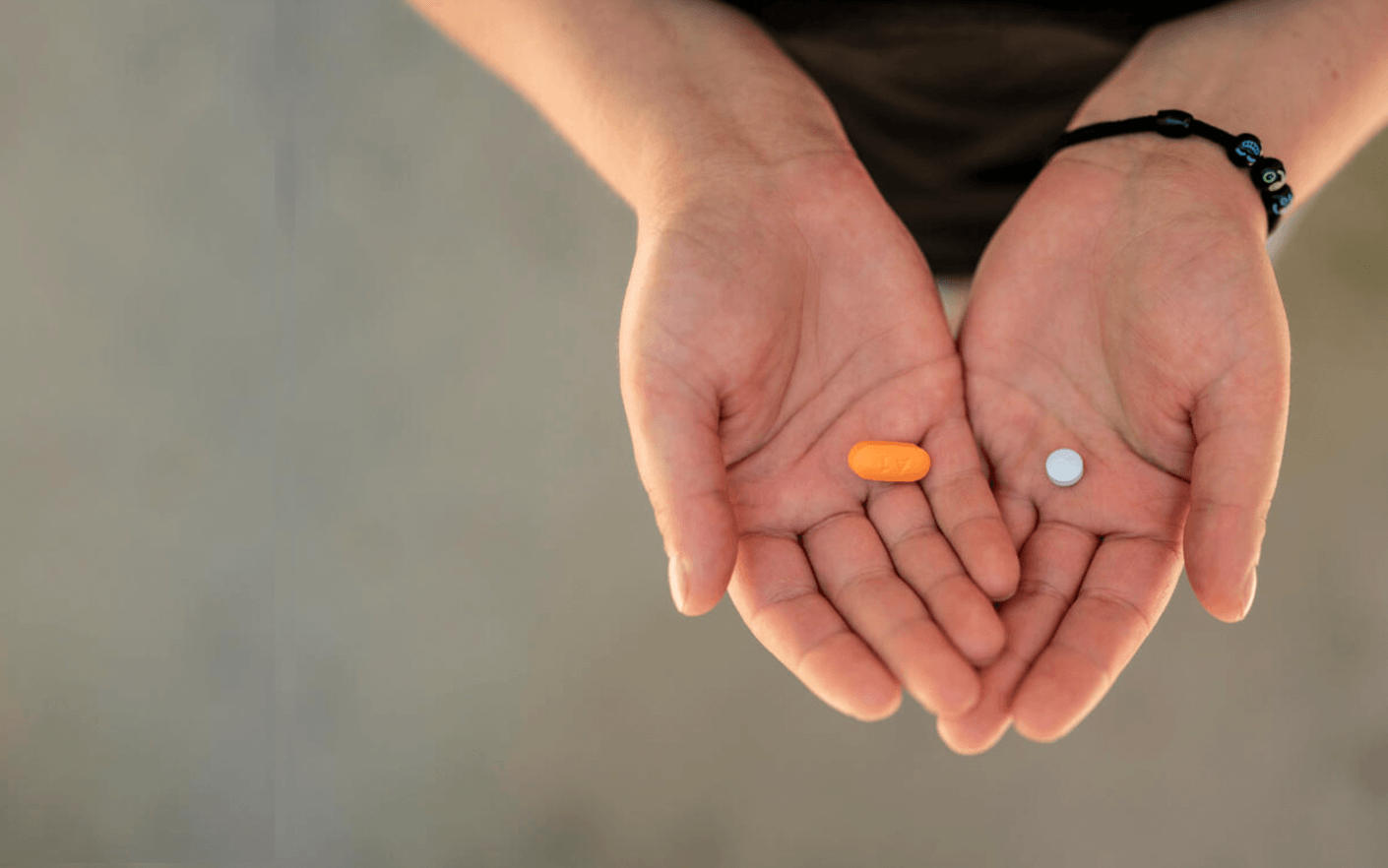
Portrait of Suzanne Nyiranshuti, the Director of Nursing at Gisenyi Hospital, at the recently built Ebola Treatment Center in Rwanda. Nichole Sobecki/VII for the Global Fund
The Global Fund partnership has saved 50 million lives since 2002
A strong return on investment

Every $1 paid by US taxpayers is matched by $2 from international donors

$31 in economic returns and health gains for every dollar invested

26% increase in life expectancy, from 52 years to 66 years, in 15 sub-Saharan African countries since 2002

20 additional years of life, on average, for an adult on low-cost TB treatment
Advances U.S. diplomatic and security interests and keeps Americans safe
When we invest in health systems around the world, we can contain pandemics at their source. A third of the Global Fund’s investments go toward building sustainable health systems that not only fight AIDS, TB and malaria, but also prepare for the emergence of new devastating diseases. The Global Fund invests in:

Diagnostic testing

Training and supporting community health workers

Disease surveillance
The Global Fund has disbursed $15 billion in challenging operating environments since 2002, helping to save lives and stabilize fragile conflict zones. U.S. investments in health can promote stability, mitigate extremism and avoid costly longer-term military interventions.
Countries that received support from the Global Fund were “associated with improved control of corruption, government accountability, political freedoms, regulatory quality, and rule of law.”

Olena, an HIV-positive woman in Ukraine, shows her daily HIV treatment. The Global Fund/ Evgeny Maloletka.
AIDS, TB, and malaria are preventable and treatable diseases that still kill more than 2.65 million people a year.
Broad, bipartisan, private sector, and faith-based support
“[50] million lives saved thanks to the Global Fund partnership and bipartisan Congressional leadership. What could be more impressive than that?”
– Former Speaker Nancy Pelosi (D-CA)
“The Global Fund has been one of the most successful programs in the history of government… The numbers speak for themselves.”
– Senator Lindsey Graham (R-SC)
Last year, more than 20 global companies and 200 faith leaders urged Congress to fully fund the Global Fund.
But global crises threaten our progress.

War and food insecurity
Global conflict, in Ukraine and elsewhere, has disrupted health services and led to sharply higher food and energy prices.

COVID-19
COVID-19 devastated health systems around the world, disrupting hard-won gains in the fight against AIDS, TB, and malaria. TB is now poised to overtake COVID-19 as the world’s deadliest infectious disease, reclaiming the position it held before the pandemic.

Climate change
More frequent extreme weather events are causing destruction to health facilities and fueling upsurges in infectious diseases. Rising temperatures also move mosquitos to higher ground, causing malaria outbreaks in new areas.

Gender inequality
Due to persistent gender inequalities and barriers to education, adolescent girls and young women in sub-Saharan Africa are three times more likely to acquire HIV than adolescent boys and young men.
Incentivizes accountability and country ownership

Co-financing requirement
The Global Fund requires countries that receive grants to increase domestic financing for health.

Regular monitoring and data collection
The Global Fund evaluates and monitors activities before, during and after a grant has been implemented to ensure the proper use of grant funds and verify results and data.

Inspector general
Through its audits and investigations, the Global Fund Inspector General promotes best practices, reduces risk and identifies instances of fraud relating to Global Fund programs. This ultimately supports the Global Fund’s record of recovering resources in the limited number of cases in which the Inspector General has found funding to be misspent or misused.
U.S. Leadership is Critical to Ending the AIDS, TB, and Malaria Pandemics and Strengthening Global Health Security
Last year, the U.S. hosted a global fundraising event for the Global Fund and pledged $6 billion for three years, which encouraged the majority of G7 leaders to also increase their investments in the Global Fund by about 30%.

Speakers from the Presidential session of the Global Fund partnership’s Seventh Replenishment Conference celebrate the announcement of US$14.25 billion so far for the next three years of work to fight HIV, TB and malaria. The Global Fund/Tim Knox
